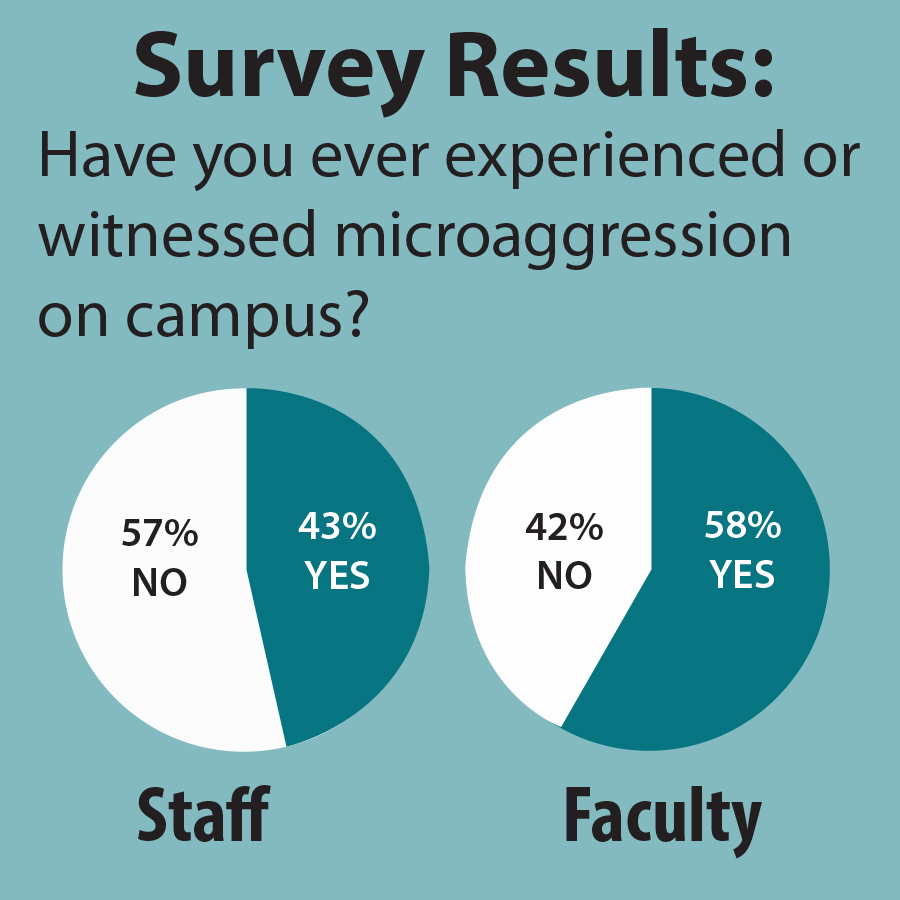Survey reveals racism, prejudice in workplace
A survey of campus faculty and staff reveals subtle acts of microaggression are common on campus.
March 1, 2018
More than half of AACC’s faculty said in a survey they have experienced or witnessed subtle acts of racism on campus.
In the 2016 survey, 58 percent of faculty and 43 percent of staff said they had experienced or observed some form of microaggression on campus.
AACC’s Chief Diversity Officer Deidra Dennie defined microaggression as “subtle but offensive comment[s] or action[s]” that enforce a stereotype about a minority or “non-dominant” group, like women.
AACC’s previous diversity officer, James Felton, conducted the survey, and Dennie presented the results at a faculty and staff meeting in December.
“I personally experienced bias when I told someone I’m Jewish, to which she immediately replied, ‘but [last name] isn’t a Jewish name, and you don’t look Jewish,’” one faculty member wrote anonymously in the survey.
The same respondent also wrote about overhearing someone telling a Hispanic coworker he “wasn’t really Hispanic because he wasn’t brown enough.”
Unlike deliberate racism, those who make subtle comments like these may not know they are being offensive, Dennie said at the meeting.
“When people [make these comments], it’s not with the intent of hatred or racism,” said James Holt, a second-year liberal arts student.
“The lesson for everyone is not to stereotype; it’s not to judge a person by their book cover; it’s to understand them and learn,” he said.
But some of the survey respondents said they felt the microaggressions were no less deliberate just because they were subtle.
“I have consistently and regularly experienced this … in addition to blatant racism,” an anonymous survey respondent wrote. “There is a clique of people who have always been given preferred treatment. … They will shut you down in meetings, ignore emails and not even exercise general professional exchanges in passing.”
Another said some coworkers treat minorities as if they are underqualified and only hired to make the college seem more diverse.
“The college does not make you feel comfortable expressing ethnic or cultural identity,” the survey respondent wrote.
“It is not often a direct ‘insult,’ but an environment. … It is apparent when people look past you and do not speak, walk into an area where you are present and ignore you—feeling like you cannot be seen.”
In an informal Campus Current survey of 15 minority students across campus in February, all who took the poll said they never experienced or witnessed any kind of microaggression on AACC’s campus.
“I’m very glad this doesn’t happen [to students] at AACC,” first-year nursing student Johna Anderson said. “I can walk around and I feel comfortable, and I’m not alone.”
Anderson, a former student at West Chester University, said she dealt with microaggressions on a regular basis but not at AACC.
“At West Chester, people would tell me I was pretty ‘for my complexion,’” Anderson, who is black, said.
Dennie said administrators plan to conduct a large-scale survey of AACC students soon.












